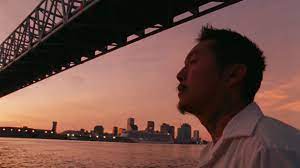Stirring, challenging social issues, refugees and deportation. A recommended film
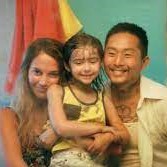
BLUE BAYOU, US, 2021, 117 minutes, Justin Chon, Alicia Vikander. Directed by Justin Chon.
This is strong drama, very strong and powerful – and recommended for audiences who appreciate the dramatic raising of social issues. Some people have said that the film pulled no punches. Rather, for this reviewer, it was rather like being put through the wringer. And, during the final credits, we are still being squeezed in the wringer.
Even as we watch, we are hoping that everything would be resolved, for a happy ending, after all, is this is an American film and that’s what we might expect. But, no, with the final image and all through the credits, there is no let up, no simplistic solutions.
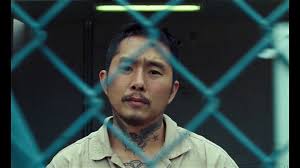
And why are we so involved. The central character, Antonio LeBlanc, is a Korean orphan, migrating to the US at the age of three in the 1980s, adopted, abused, discarded, stealing felonies. But, nevertheless he is a most engaging character, a credit to Justin Chon (who has written the screenplay, directs and acts), American born but with his own Korean heritage. He creates such a likeable man, joyful father delightfully playing with his stepdaughter, a caring husband to his pregnant American wife, eliciting sympathy despite his limitations. Of course, it is the migrant issues, especially the dramatic highlighting of deportations that gripped us.
This means that we watch with Australian eyes, memories of the post-World War II migrations, acceptance of the British, the Poms, but wariness of the Italians and Greeks, dagos, Poles and migrants from other countries of Europe. It means memories of the experience of the acceptance of refugees from Vietnam in the 1970s and 1980s, much more acceptance here. And, then, 20 years of boat people, of turn backs, of engagement against people smugglers, harsher and harsher legislation, refusal of entry to boat people, calling them illegal even though they had rights to refugee status, Muslims, Middle East, isolation on Nauru, on PNG’s Manus Island, years and years of harshness, stagnation, futures denied.
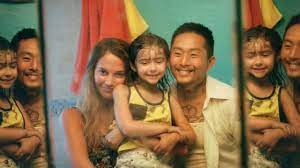
And, more to the point, the years of the experience of the Sri Lankan family in Queensland’s Biloela, accepted by the community and welcomed, yet their being taken, isolated on Christmas Island, kept in custody, years and years of legal wrangles about the refugee status, imminent threats of deportation, but the issues of the nationality of their children, the possibilities for compassionate intervention by politicians – but none forthcoming.
Perhaps we were ready to be put through the wringer even before we go into the cinema.
It is a surprise to discover the number of Korean and Asian children, apart from the Vietnamese, who had been adopted in the US. It is difficult to follow all the details of legislation about adoptions, rights, citizenship, times and dates on which residency and deportation depended. All very complicated, bureaucratic.
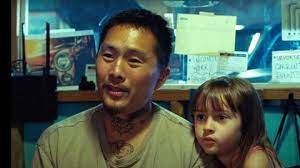
But, here is the story of Antonio, sympathetic, supported by his pregnant wife and loved by her little daughter. But, prejudice and racism forever hovering. His mother-in-law unwilling to speak to him, ready to snatch her granddaughter away from him. His wife’s former husband, police and angry, and the aggressive hostility, of his partner, even to getting his buddies to bash Antonio, preventing him from getting to the court in time for his hearing. And there is the back story of his adopting parents, his unwillingness to make contact with his mother, eventually going to see her, his and our being puzzled at her behaviour towards him during his pleading visit.
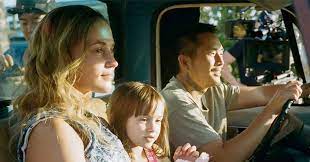
The screenplay does not make Antonio out to be a saint. Not only has he stolen in the past, his felonies and race preventing him in the opening interview from being given a job as a mechanic, but to get the money for the lawyer for his case, he and his friends steal more motorbikes. We realise that according to the letter of the law, authorities will not easily grant him citizenship.
And, then there is Antonio’s encounter with the Vietnamese refugee, Parker, her kindness at the hospital, meeting him in the street when advertising his tattoo studio, desperately in need of funds to pay for a lawyer to fight his deportation case, inviting him to her home for a Vietnamese gathering meal, her genial father, Antonio asking whether he regretted dividing his family on the boats escaping Vietnam and his replying “never”, Parker’s visit again for another tattoo and Antonio’s harsh dismissal, her terminal cancer, their talking, the sadness of her death.
If only those against migration or those who say they are for migration but are rigid in their interpretation of laws, rules and regulations, could sit down quietly and watch this story, get to know the characters from the inside, and be moved.
